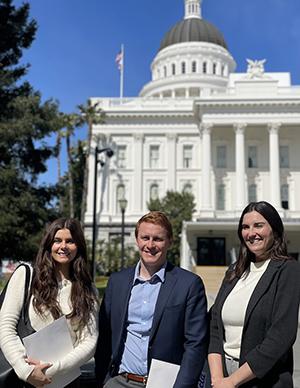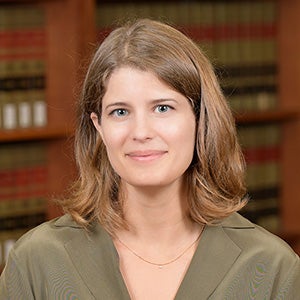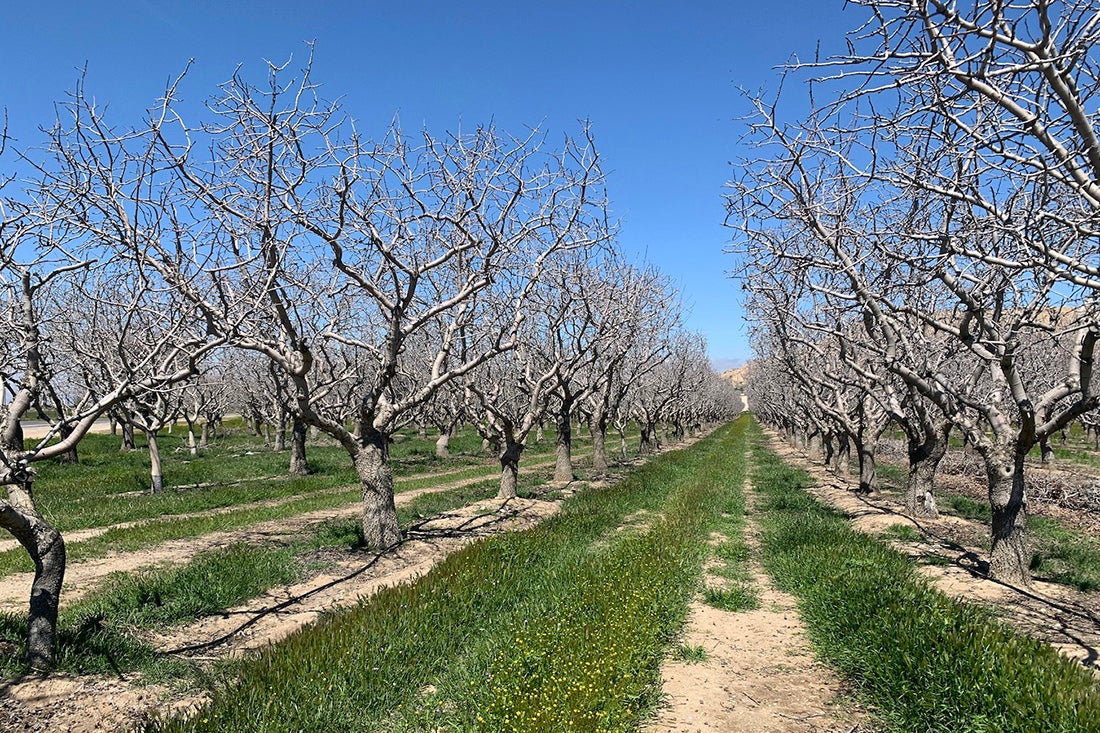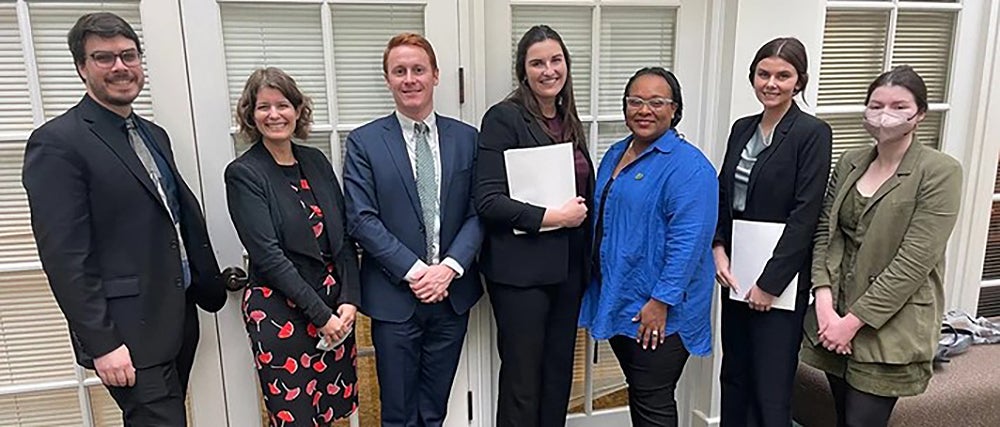Environmental Law Students and Advocates Pass a New Groundwater Law
UCLA Law Magazine | Fall 2023 | Volume 46

The Emmett Institute on Climate Change and the Environment, UCLA Law’s environmental law hub, tracks many environmental bills that move through Sacramento each legislative session. But when Governor Gavin Newsom signed AB 779 in October, students and faculty at the center paid extra close attention. Three UCLA Law students helped write the new groundwater law.
AB 779 focuses on improving the legal process when disputes over groundwater end up in court. In the era of climate change, with drought more prevalent and water increasingly precious, more of these groundwater fights are likely to involve adjudication.
Introduced by Assemblymember Lori D. Wilson (D-Suisun City), the bill is an effort to level the playing field for small farmers and marginalized communities lacking the resources to navigate expensive and time-consuming groundwater adjudications. UCLA Law students Adrianne Davies, Owen McAleer and Gabi Rosenfeld (J.D. candidates 2024) did research and testified on the measure at committee hearings in both the state assembly and senate. At a hearing this summer, one state senator wrapped up his testimony by saying, “I don’t know what I was doing in my third year of law school, but it wasn’t this.”

This is precisely the work of the California Environmental Legislation and Policy Clinic, supervised by Deputy Director Julia Stein, which gives UCLA students the opportunity to engage directly with state senators and assemblymembers, legislative staffers, advocates, and stakeholders on important environmental issues. Through their work with legislative offices, students immerse themselves in the California legislative process.
This is the third year in a row that the clinic assisted with legislation that became law. Last year, a student team helped Senator Ben Allen’s office with SB 54, a bill to significantly reduce single-use plastic waste. Students also helped to draft and pass AB 2243, developed with Assemblymember Eduardo Garcia’s office. In 2021, student research supported SB 63 (wildfire) and SB 83 (sea-level rise revolving loan fund). Clinic students also supported California delegations that traveled to the United Nation’s climate talks in Egypt and annual Biodiversity Conference in Canada, both in 2022. We know from both the students and the legislators that this clinic offers valuable experience.

Our students get to work on cutting-edge environmental issues with legislative staff, contributing to innovative legislative solutions, while gaining a nuanced understanding of what it takes to make laws in California.
Getting AB 779 written and passed took just over a year. The students produced several rounds of research memos and stakeholder interviews with Emmett/Frankel Fellow Beth Kent, then settled on a final proposal with Assemblymember Wilson’s legislative director, Mark Rossow. Before testifying as expert witnesses, the students held a mock hearing in UCLA Law’s moot courtroom, with Emmett Institute staff role-playing as assemblymembers.
“I think all three of us have developed a passion for the bill and really want it to make it through the Legislature,” said Adrianne Davies on the eve of their first Assembly hearing.

Staff of the Emmett Institute worked with the students to write about the bill in Legal Planet, a law and policy blog collaboration between faculty at UC Berkeley School of Law and UCLA School of Law. They also helped connect the possible legislation to the broader conversation about California’s management of groundwater and the often-unfair adjudication process for small water users. The bill was highlighted by the Los Angeles Times, the Sacramento Bee, and other outlets.
Going forward, AB 779 will change the adjudication process in ways that benefit smaller parties. Courts will need to consider “the water use of and accessibility of water for small farmers and disadvantaged communities” while making a judgement. The groundwater sustainability agency (GSA) in a given basin will receive all pleading and briefing materials from involved parties. The new law will allow the court to refer groundwater adjudications to the State Water Resources Control Board, helping courts to better scientifically understand groundwater use in a basin. Because adjudications can go on for years, there will now be precautionary measures to prevent the over-pumping of groundwater while the parties await an adjudication ruling.
The California Environmental Legislation and Policy Clinic has continued to grow. This fall, Sabrina Ashjian joined as an Emmett Institute clinical supervising attorney and project director to help steer the clinic. Student teams are working with several legislators this year on a range of projects dealing with fossil fuel phaseout, electric vehicle battery reuse and recycling, climate-friendly infill housing, and the environmental justice implications of carbon capture and storage technologies.